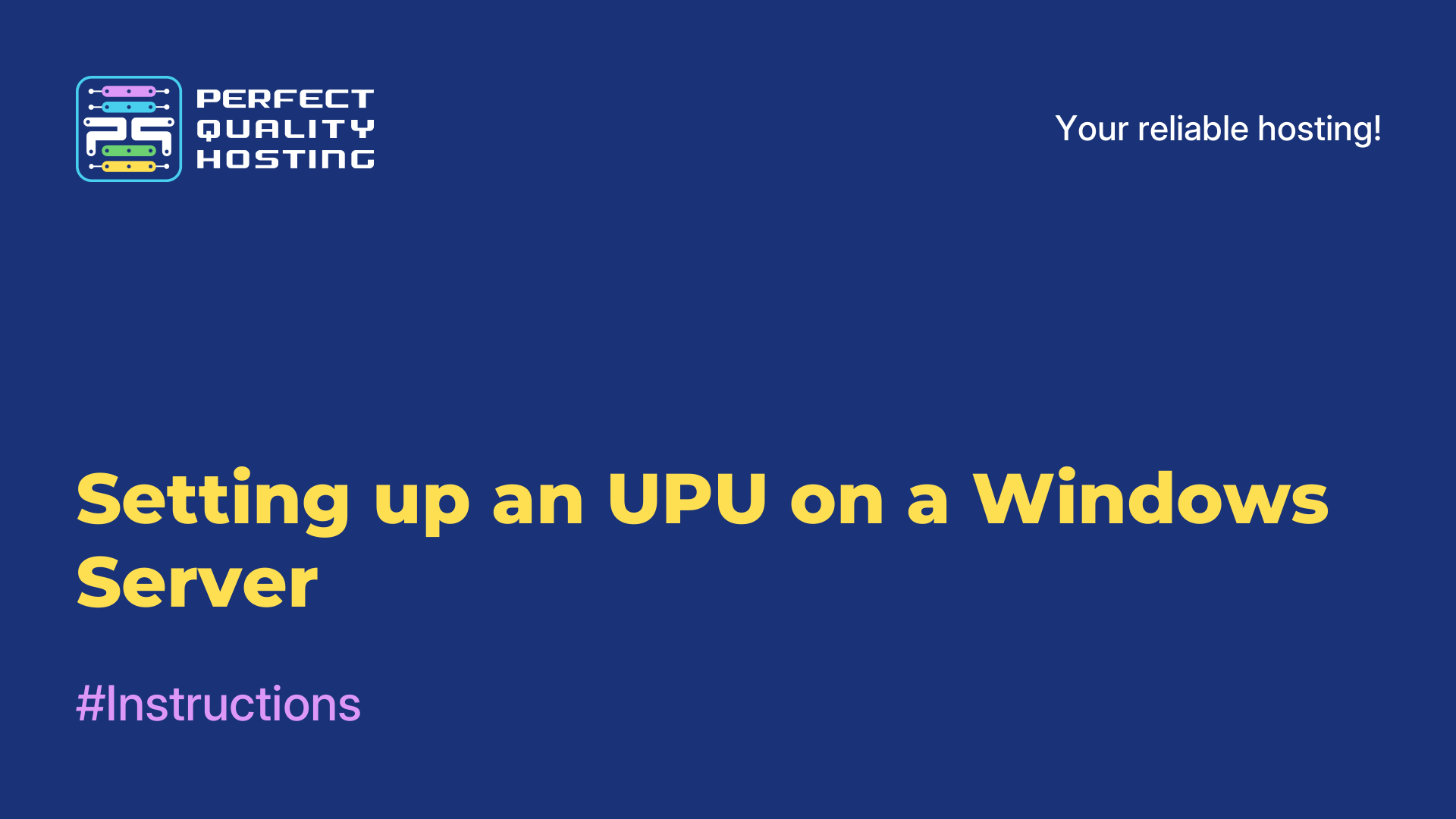Partners
Methods of payment
Contact
-
United Kingdom+44 (20) 4577-20-00
-
USA+1 (929) 431-18-18
-
Israel+972 (55) 507-70-81
-
Brazil+55 (61) 3772-18-88
-
Canada+1 (416) 850-13-33
-
Czech Republic+420 (736) 353-668
-
Estonia+372 (53) 683-380
-
Greece+30 (800) 000-02-04
-
Ireland+353 (1) 699-43-88
-
Iceland+354 (53) 952-99
-
Lithuania+370 (700) 660-08
-
Netherlands+31 (970) 1027-77-87
-
Portugal+351 (800) 180-09-04
-
Romania+40 (376) 300-641
-
Sweden+46 (79) 008-11-99
-
Slovakia+421 (2) 333-004-23
-
Switzerland+41 (22) 508-77-76
-
Moldova+373 (699) 33-1-22
 English
English
Disks for VPS/VDS: which ones are used
- Main
- Knowledge base
- Disks for VPS/VDS: which ones are used
19.02.2023, 02:26
UPU disks are virtual disks that are created and used on a physical server to store UPU data and files. Depending on the hosting provider that provides the VPS, there may be different types of disks.
Types of disks
The main types of disks for UPU:
1. HDD (Hard Disk Drive) - traditional hard drives that are used to store data on most servers. They offer a large amount of storage at a relatively low price.
2. SSD (Solid State Drive) - disks based on solid-state memory, which provide high speed of reading and writing data, which leads to faster loading of applications and files.
3. NVMe (Non-Volatile Memory Express) is a new standard for solid-state drives that provides even faster data read and write speeds than SSDs. This type of disk is most suitable for working with large amounts of data and applications with high performance requirements.
Depending on the requirements of the applications and the available budget, you can choose the appropriate type of disk for the UPU. However, in most cases it is recommended to use SSD or NVMe drives, as they provide higher performance and speed.
HDD
Despite the fact that SSD and NVMe drives are becoming more and more popular in hosting VPS, HDD drives still have their advantages:
Storage Capacity: HDD drives provide more storage compared to SSD and NVMe drives at a lower cost per gigabyte.Lifetime: Unlike SSD and NVMe drives, HDD drives have no limits on the number of read/write operations, which means they can last longer.Cost: HDD drives are usually cheaper than SSD and NVMe drives, which can be an important factor, especially when working with large amounts of data.Reliability: Although SSD and NVMe drives provide faster data read/write speeds, HDD drives are still considered more reliable, as they are less likely to fail due to damage to solid-state memory.Easy to replace: In case of HDD failure, replacing it is usually easier and cheaper than replacing an SSD or NVMe disk.
Applications with high data read/write speed requirements, such as web servers or databases, can run faster on SSD or NVMe disks, so in such cases, the use of HDD disks may be undesirable.
SSD
SSD drives are a more modern data storage technology than HDD drives, and have a number of advantages that make them an attractive choice for use as storage for VPS:
Fast read and write speed: SSD drives significantly speed up the process of reading and writing data compared to HDD drives. This is especially important for applications that require quick access to data, for example, for storing databases or web servers.Lower power consumption: SSD drives consume less energy than HDD drives, which reduces energy costs for servers and reduces heating, which also has a positive effect on the durability of equipment.Greater reliability: SSD drives have fewer mechanical parts than HDD drives, so they are less prone to damage and failures.Quiet operation: Since SSD drives have no moving parts, they work without noise, which can be important for use in office spaces or residential areas.Small size: SSD drives usually have a more compact size than HDD drives, which makes them more convenient for use in compact servers or virtual machines.Vibration and shock resistance: SSD drives are not sensitive to vibrations and shocks, so they can be used in conditions of increased vibration or movement, for example, in transport.
Using SSD drives as storage for the VPS can increase the performance and reliability of the server, especially if fast data read/write speed is important.
NVMe
NVMe (Non-Volatile Memory Express) is a new data storage technology that is used to create high-performance SSD drives. Compared to traditional SSDs, NVMe has a number of advantages that make it attractive for use as storage for VPS.
Some of the advantages of using NVMe for UPU are listed below:
High Read and Write Speed: NVMe provides high data read and write speed, which can be 5-7 times higher than conventional SSDs. This allows you to achieve maximum performance for applications that require fast data access, such as databases, web servers and applications that process large amounts of data.Low Latency: NVMe has a low latency, making it an ideal choice for high I/O load applications where every millisecond can make a difference.Improved Performance: NVMe can increase the performance of the VPS, especially in applications with a high I/O load, which makes it an excellent choice for use as storage for large projects and applications.Energy efficiency: Since NVMe uses less energy than traditional SSDs, it can be more energy efficient, which helps to reduce energy costs for servers and reduce heating, which also has a positive effect on the durability of equipment.High Reliability: NVMe has high reliability and durability, making it an ideal choice for use in mission-critical applications.
The cost of NVMe drives may be higher than that of traditional SSDs, so the choice of data storage technology will depend on the specific needs of your project and budget






































